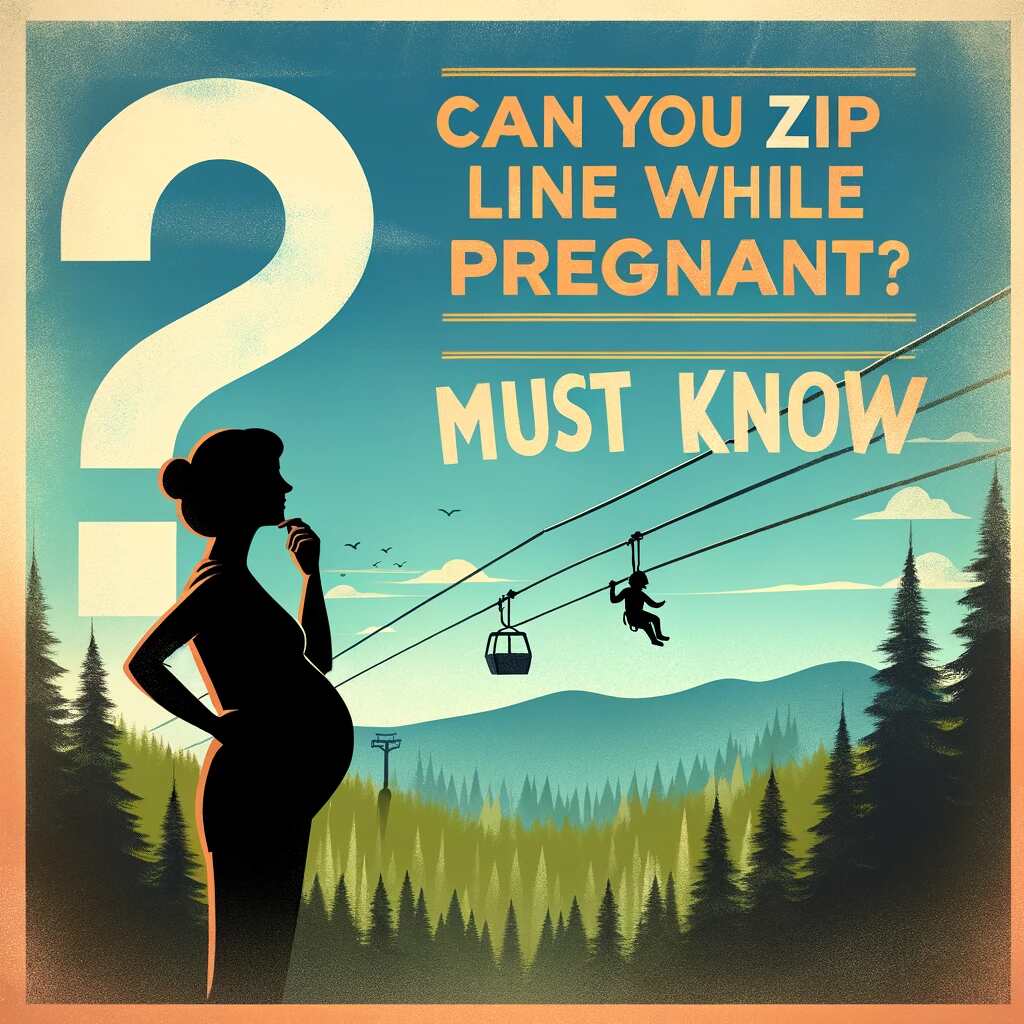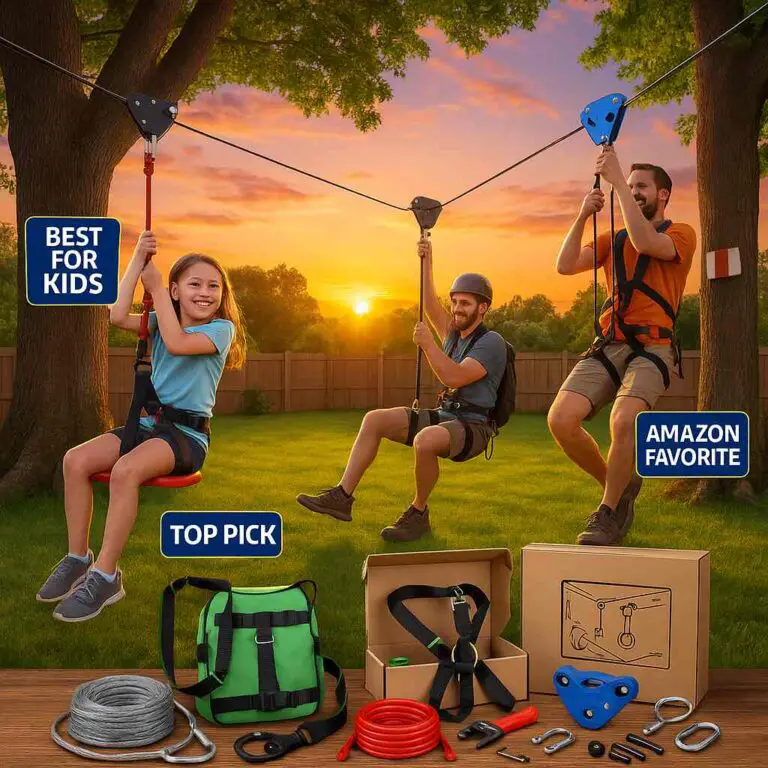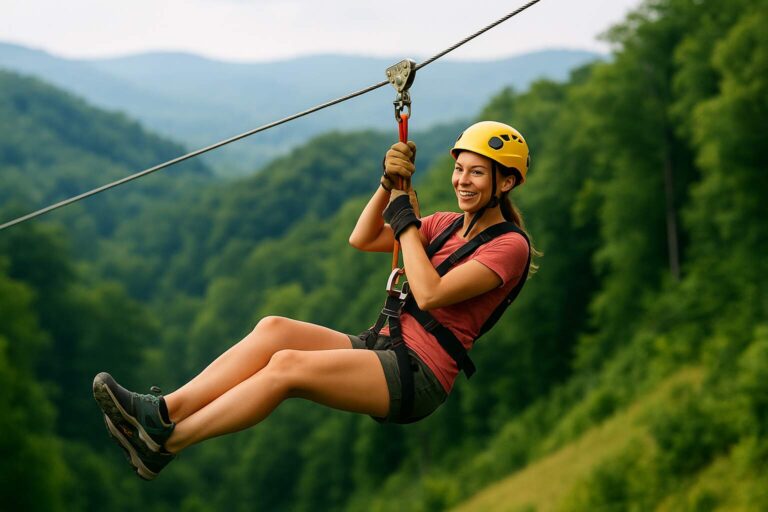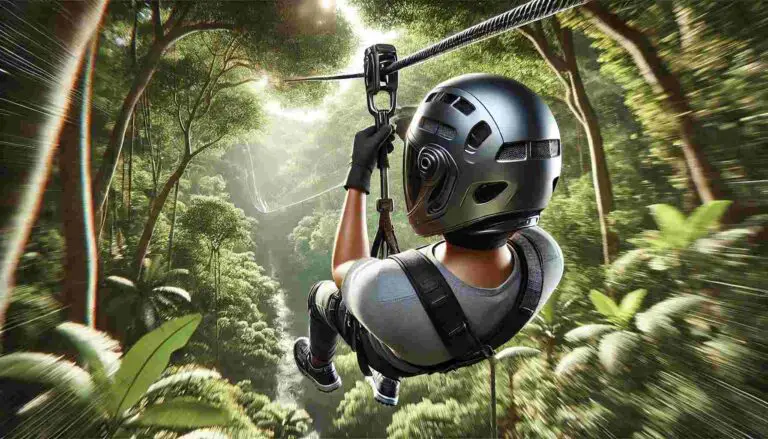If you love adventure, you might wonder if ziplining is safe while pregnant. The thought of flying through the trees sounds awesome, right? However, pregnancy brings certain risks that make safety a priority. Understanding those risks is key before deciding whether to zipline while pregnant.
Why Ziplining Isn’t Safe During Pregnancy
Ziplining is exciting but carries certain risks when you’re pregnant. Here’s why:
1. Abdominal Pressure
The harness used in ziplining applies pressure to your abdomen. During pregnancy, your body is already changing and added pressure could potentially harm your baby.
2. Sudden Jolts and Stops
Ziplining often involves sudden stops or rapid direction changes. These jolts could cause injury, especially to your abdomen, which may lead to complications.
3. Risk of Falling
Pregnancy shifts your center of gravity. This makes it easier to lose balance. Though zipline operators prioritize safety, there’s still a chance of falling.
4. Increased Heart Rate
The excitement of ziplining can cause your heart rate to spike. While this is generally fine for most people, it could be risky for pregnant women with certain health conditions.
5. Environmental Factors
Many ziplining courses are located in remote areas with tough terrain or extreme temperatures. These environmental challenges can be physically demanding, especially during pregnancy.
Zipline Operators and Liability
Most reputable zipline companies focus on safety. They require participants to confirm that they aren’t pregnant before allowing them to zipline. You may also be asked to sign a waiver for liability purposes.
This precaution is not about discrimination; it’s about reducing risks to pregnant women. Pregnancy is a condition that increases the likelihood of complications, so operators must be cautious to ensure your safety.
Speak With Your Doctor
Before engaging in any physical activity during pregnancy, it’s important to consult your healthcare provider. They will provide advice based on your health, pregnancy stage, and any other medical factors. Most likely, your doctor will advise against ziplining, especially as your pregnancy progresses. Their guidance will help you make an informed decision about what’s safe for you and your baby.
Safer Alternatives for Pregnant Women
If ziplining isn’t safe during pregnancy, don’t worry. There are plenty of other activities that can keep you active and healthy during this time. Here are some great alternatives:
1. Walking
Walking is one of the safest, easiest, and most accessible exercises for pregnant women. It’s low-impact, easy to do, and great for your cardiovascular health. Plus, it’s a simple way to get outdoors and enjoy the fresh air.
2. Swimming
Swimming is an excellent choice for pregnant women. The buoyancy of the water reduces strain on your joints while offering a full-body workout. It’s also a great way to stay cool during the summer months.
3. Prenatal Yoga
Prenatal yoga is specifically designed for expectant mothers. These classes focus on gentle stretches, deep breathing, and relaxation techniques. Prenatal yoga promotes flexibility, reduces stress, and helps prepare your body for childbirth.
4. Stationary Cycling
Cycling on a stationary bike is another great low-impact exercise option. It offers cardiovascular benefits without the risk of falling. It’s ideal for maintaining fitness and stamina without overexerting yourself.
5. Prenatal Exercise Classes
Many gyms offer prenatal exercise classes tailored to the needs of expectant mothers. These classes provide a safe way to stay active, improve strength, and maintain overall fitness while ensuring that exercises are appropriate for each stage of pregnancy.
6. Meditation and Relaxation
Pregnancy can be stressful, and relaxation techniques like meditation can help manage stress. Deep breathing exercises and mindfulness are great ways to calm your mind and reduce anxiety during pregnancy.
Must-Have Gear for Active Moms-to-Be
Having the right gear can make staying active during pregnancy easier and more comfortable. Here are some great picks:
Maternity Activewear
Comfortable and supportive maternity activewear is essential. Motherhood Maternity Activewear Pants are perfect for walks, light exercise, or casual outings.
Prenatal Yoga Gear
A good yoga mat can make a huge difference in your practice. The BalanceFrom GoYoga All-Purpose Yoga Mat provides extra cushioning and stability, ensuring your comfort during yoga sessions.
Hydration Gear
Staying hydrated is essential, especially when exercising. The CamelBak Eddy+ Water Bottle is designed to be easy to carry, making it perfect for outdoor walks or workouts.
Walking Footwear
Comfortable shoes are a must for regular walking or light exercise. The ASICS Women’s Gel-Venture 7 Running Shoes provide great support and comfort, helping to reduce strain on your feet and joints.
Relaxation Products
To promote relaxation at home, consider an InnoGear Essential Oil Diffuser. It helps create a calm atmosphere, ideal for winding down after a busy day.
Frequently Asked Questions
Q: Can I zip-line during my first trimester?
A: It’s not recommended at any stage of pregnancy. The risks associated with harness pressure and sudden movements apply throughout the pregnancy.
Q: Are any zip-line courses safer for pregnant women?
A: No, zip-line courses aren’t considered safe for pregnant women due to the inherent risks, such as abdominal pressure and sudden jolts.
Q: What if I have experience with zip-lining?
A: Even experienced zipliners should avoid this activity while pregnant. Hormonal and physical changes during pregnancy can affect your balance and overall response to the activity.
Q: Can I sign a waiver and zip-line while pregnant?
A: Even if you sign a waiver, it’s still not safe to zip-line while pregnant due to the risks involved.
Q: What other outdoor activities are safe during pregnancy?
A: Walking, swimming, prenatal yoga, and stationary cycling are safe alternatives to zip-lining. These activities provide health benefits without the high risks.
Conclusion
Zip-lining during pregnancy isn’t recommended because the harness puts pressure on your abdomen, which could be uncomfortable or risky. That’s why most operators ask if you’re pregnant. But don’t worry; there are plenty of safer outdoor activities to enjoy, like hiking, nature walks, or scenic boat tours. Just check with your doctor first!
Your doctor will help you understand what activities are safe and beneficial for you and your baby. Your health and well-being, as well as your baby’s safety, should always come first.
For more information about pregnancy health and safety, visit the CDC and Women’s Health websites.








